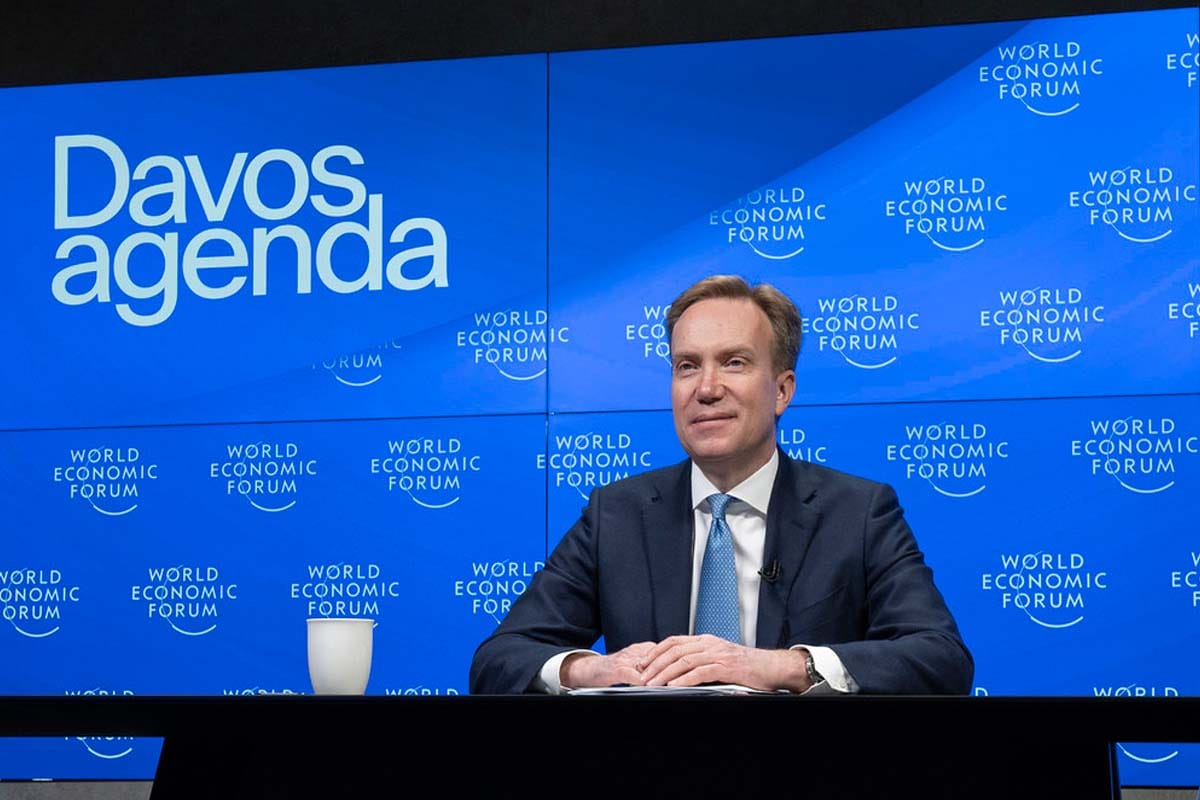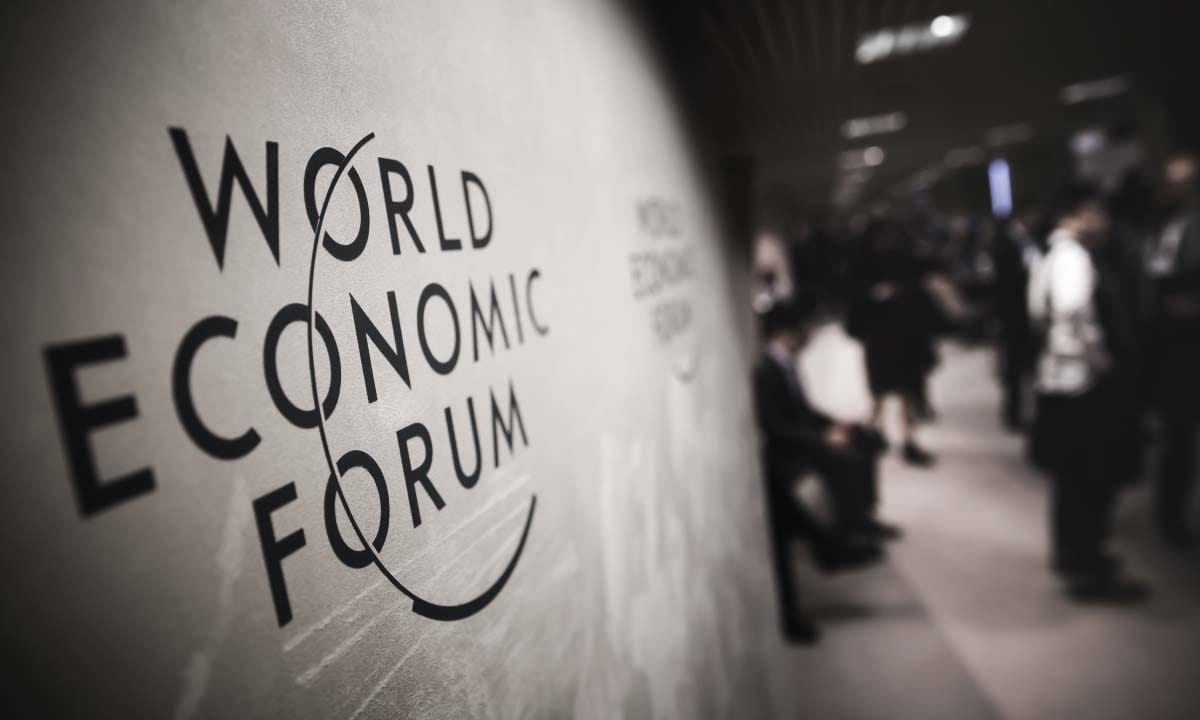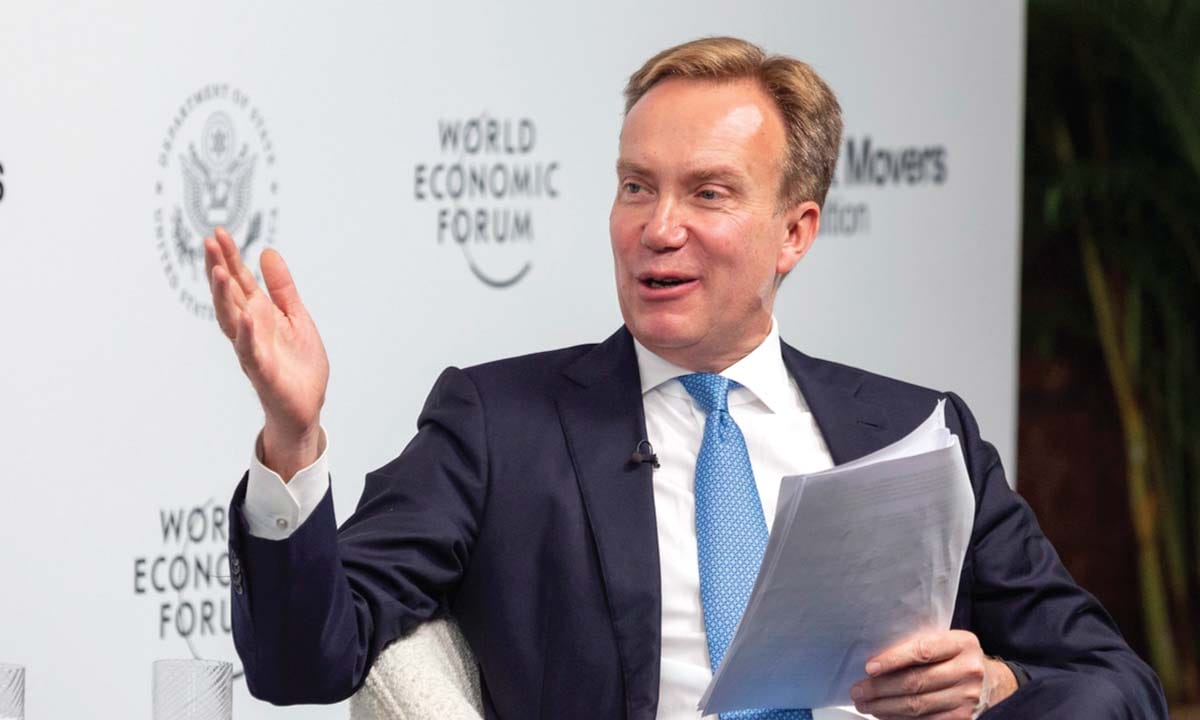The planet is home to over 8 billion people. As the population grows, potentially hitting 9 billion in 2037, the scarcity of resources becomes even more amplified. And in a world fraught with many economic challenges, collective action is needed to drive impactful change.
The World Economic Forum, a non-governmental organization for public-private sector collaboration, is a vital platform where leaders and stakeholders can discuss pressing issues and, ultimately, catalyze action.
From January 15 to 19, 2024, WEF will hold its 54th annual meeting in Davos, Switzerland. It “will provide a crucial space to focus on the fundamental principles driving trust, including transparency, consistency and accountability.”
WEF’s significance lies in its ability to convene diverse participants. The upcoming gathering will welcome over 100 governments, all major international organizations and 1,000 of the Forum’s Partners – alongside civil society leaders, experts, youth representatives, social entrepreneurs and news outlets.
Global challenges, global effort
The theme of the World Economic Forum’s 54th Annual Meeting is “Rebuilding Trust.” According to WEF President Børge Brende, the selection of this theme comes as a response to profound global transformations and challenges. It also emphasizes the need for leaders to come together to forge solutions.
One alarming concern that the world needs to address is global warming. 2023 was the warmest year on record – and by an enormous difference. From January to November last year, the average temperature worldwide was 15.1°C. It is 1.46°C higher than pre-industrial levels. A recent study published in The Lancet Planet Health suggests that about 500,000 deaths worldwide each year might be caused by extremely hot weather.
Besides global warming, slow economic growth and poor security are critical topics for discussion.
“In the year ahead, global growth is projected to be 3 percent – well below historical averages of 3.8 percent. And we are facing an ongoing deterioration of global security, with over 114 million people forcibly displaced from their homes – the highest level ever,” Brende said.
Indeed, the world is currently at a critical juncture where escalating issues can further deepen economic disparities.
According to the WEF president, addressing these challenges requires cooperation. However, we’re witnessing a decline in trust, affecting relationships between parties and the fundamental belief that working together is key to achieving greater global good.
“The theme ‘Rebuilding Trust’ reflects the imperative to strengthen partnerships and address global priorities together. The annual meeting will serve as a platform for inclusive dialogue that brings parties together to identify pathways toward achieving shared priorities. In this way, we hope it will help strengthen and rebuild trust,” Brende said.
Finding ways to collaborate
As Brende emphasized, people can still work together even when they disagree. For instance, the private sector has long known that companies can collaborate on issues of shared concern, like addressing climate change, even while competing for customers. This is called “coopetition.” Coca-Cola, Dr Pepper and Pepsi are prime examples: Nearly a decade ago, they came together to address the issue of plastic waste.
“If companies – even those who are fierce rivals – can do this, so can countries. Once parties understand that cooperation doesn’t mean agreeing with everything the other party stands for, they will be more willing to collaborate in pursuit of shared objectives,” Brende said.
He also underscored how, over the past years, the world has slid from cooperation to competition to conflict.
For 25 years after the Cold War ended in the early 1990s, the world saw a cooperative period. During that time, countries prioritized stability, security and prosperity. Additionally, trade soared, and as a result, nearly 1.5 billion people were able to lift themselves out of extreme poverty.
“But by about 2018, countries began to turn inward in a more forceful way. Trade-restrictive measures, including tariffs, reached highs. And then, of course, in 2022, we saw the major war in Europe. By the start of last year, the United Nations warned we were seeing the highest number of violent conflicts since World War II,” the WEF president said.
While it’s still uncertain where the world will go from here, the truth remains: In the face of major global challenges, we must find new cooperation mechanisms. Particularly, the globe needs mechanisms that can withstand geopolitical shocks.
According to Brende, the only way we can thrive is if we identify and implement these mechanisms for cooperation.
Read: Davos 2024: What to expect from the World Economic Forum
On economic policies
With this imperative for cooperation in mind, the focus now shifts to how future economic policies can be adapted to meet the evolving dynamics of the global economy.
For Brende, who previously served as Norway’s minister of foreign affairs, trade and industry, and environment before helming the World Economic Foundation, policies must be inclusive and sustainable. Otherwise, the world will not be on a pathway toward prosperity.
To underscore the sense of urgency, here is one stark statistic: There are only six years left until the 2030 deadline for achieving the U.N.’s Sustainable Development Goals; however, just 12 percent of the targets are on track.
“There is no way our economies can be healthy and resilient if our planet and our people are not,” Brende pointed out.
Thankfully, the world has been seeing leaders commit to practices that deliver widespread growth. For example, the African Continental Free Trade Area agreement includes gender equality as an objective. This free trade area is the largest in the world, and has the potential to raise incomes by 8 percent and lift 50 million people out of poverty.
In 2022, the world also saw environmental goods trade surge to almost $2 trillion, marking a $100 billion jump from the preceding year. This significant increase in the trade of environmental goods highlights a growing global commitment to sustainability, underlining the urgent need to enhance green supply chains and ensure that developing economies have equitable access to such crucial resources.
World Economic Forum milestones
The world faces numerous challenges across the entire spectrum, ranging from economic disruptions to climate change. Despite all these, significant strides have been made to address key issues.
For example, there has been a promising growing commitment and intent in the part of the private sector to lead in fighting climate change. The First Movers Coalition is one collaborative initiative of the World Economic Forum that brings together companies from diverse sectors. These include energy, technology and finance. The objective is to accelerate the transition to a net-zero economy. According to Brende, it has already signed more than 90 agreements supporting the coalition’s commitments to reduce emissions in hard-to-abate sectors.
In one of the agreements, Volvo, a founding member of the FMC, teamed up with Holcim to provide 1,000 heavy-duty electric trucks by 2030. This will replace 1,000 diesel trucks in Holcim’s operations, the world’s largest building solutions provider.
Another one saw Microsoft agreeing to buy around 2.7 million tons of carbon removal credits from Ørsted, a Danish multinational energy company, over 11 years. This deal is one of the biggest of its kind so far in terms of the amount of carbon dioxide being removed.
Fostering cooperation
Understanding the importance of cooperation among competitors, from local initiatives to large corporations, raises the question: How does one encourage collaboration between entities with competing interests?
For Brende, it is about emphasizing mutual benefits, highlighting shared objectives and framing cooperation as a solution to common challenges. And the World Economic Forum is at the forefront of these.
One of its initiatives is the Alliance of CEO Climate Leaders. It’s a community of more than 120 chief executive officers committed to accelerating the net-zero transition by setting science-based targets. The CEOs also work together to promote emissions disclosure and catalyze decarbonization and partnerships across global value chains.
Recently, the alliance announced the launch of its Scope 3 Action Plan. The plan aims to tackle scope 3 emissions through collaborative action across value chains. Scope 3 emissions come from activities not directly controlled or owned by a company but from its business operations and supply chain.
Promoting the ethical use of AI
Technology is also a critical topic when it comes to sustainability given the influential role it plays in our daily lives.
According to estimates, generative artificial intelligence can add $2.6 trillion to $4.4 trillion annually to the global economy. The U.N. also said that AI can be crucial in combating climate change.
For instance, AI algorithms can make renewable energy systems work better and more reliably by predicting how much energy will be needed. It will help improve how power grids operate and subsequently reduce harmful emissions, supporting the move to cleaner energy solutions.
“We know the benefits of AI can be enormous. But there are also grave risks. Last summer, U.N. Secretary-General [António Guterres] urged the Security Council to take on the issue, saying that unless properly governed, the technology could bring damage ‘on an unimaginable scale.’”
In a speech, Guterres underpinned that the rise of AI, especially in areas like disinformation and deepfakes, poses serious threats to global security and stability. Its interaction with critical technologies like nuclear weapons and biotechnology further heightens these risks. Therefore, managing AI’s impact is crucial for safeguarding the future.
“The AI Governance Alliance, an initiative introduced by the WEF, serves as a collaborative platform for stakeholders from governments, businesses, academia and civil society to develop and implement guidelines for the ethical use of AI technologies,” Brende said.
The alliance recently advanced proposals to establish a robust international AI governance framework.
This focus on responsible AI usage resonates with the World Economic Forum’s overarching theme of rebuilding trust. Trust, whether in technology or other sectors, is fundamental in catalyzing global action and shaping a safer, more prosperous world – for today’s generation and all those to come.
For more interviews, click here.






